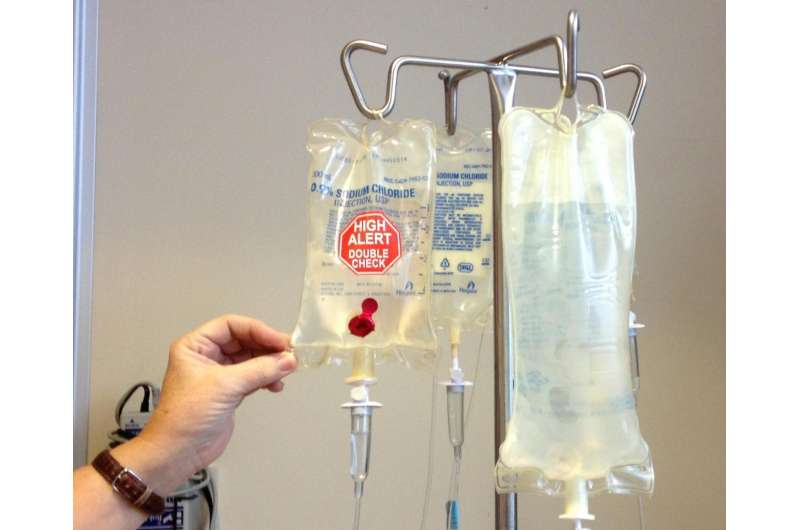Researchers identify protein linked to heart failure in chemo patients

A team led by Dr. Lorrie Kirshenbaum from the Rady Faculty of Health Sciences and St. Boniface Hospital Research has identified a protein called TRAF2 that stops functioning in cancer patients taking the chemotherapy drug doxorubicin, which can result in heart failure.
"The finding could lead to new drugs that save cancer patients," said Kirshenbaum, lead investigator and UM Canada Research Chair in molecular cardiology and director of the Institute of Cardiovascular Sciences, St. Boniface Hospital Albrechtsen Research Center.
While doxorubicin is used to treat many types of cancer, particularly breast and ovarian cancer, some patients who receive the drug develop heart problems that lead to heart failure.
Using a variety of state-of-the-art approaches, the researchers discovered that doxorubicin impairs the activity of TRAF2 in the heart which leads to heart failure. The team also showed that interventions that restored the TRAF2 activity suppressed the unwanted side effects and heart failure induced by doxorubicin treatment.
"This is a significant finding that we are very excited about," said Kirshenbaum, professor of physiology & pathophysiology and pharmacology & therapeutics, Max Rady College of Medicine, University of Manitoba. "We discovered that TRAF2 was consistently down-regulated in cancer patients with heart failure who had received doxorubicin treatment. Our pre-clinical study showed that by restoring TRAF2, we could prevent injury to the heart muscle and heart failure induced by doxorubicin."
The results of the study, titled "Proteasomal Degradation of TRAF2 Mediates Mitochondrial Dysfunction in Doxorubicin-Cardiomyopathy," were published in the American Heart Association's cardiac journal Circulation.
Kirshenbaum said the research has revealed a novel cellular pathway that connects the loss of TRAF2 to the undesirable cardiotoxic effects of doxorubicin that could lead to new ways to completely eliminate this unwanted side-effect in millions of cancer patients.
"Essentially, we're talking about the difference of the heart tissue surviving unscathed versus experiencing premature and irreversible cell damage as a result of these powerful cancer-treating drugs," said Dr. Richard Kitsis, professor of medicine and cell biology, director, Wilf Family Cardiovascular Research Institute, Albert Einstein College of Medicine in New York. "Enhancement of TRAF2 function in the heart may provide a novel therapeutic approach."
Kirshenbaum and his team are currently working on new therapies and drugs that could be used to prevent cardiac injury in cancer patients undergoing doxorubicin treatment.
Dr. Peter Nickerson, UM vice-provost (health sciences), and dean of the Rady Faculty of Health Sciences, said he's excited about the study and prospects of new therapies that could improve patient care.
"This study builds upon Dr. Kirshenbaum's leadership in cardiovascular sciences globally, and importantly, it reflects the high caliber of CIHR funded research at the Rady Faculty of Health Sciences and St. Boniface Hospital Albrechtsen Research Center," Nickerson said.
More information: Rimpy Dhingra et al, Proteasomal Degradation of TRAF2 Mediates Mitochondrial Dysfunction in Doxorubicin-Cardiomyopathy, Circulation (2022). DOI: 10.1161/CIRCULATIONAHA.121.058411



















